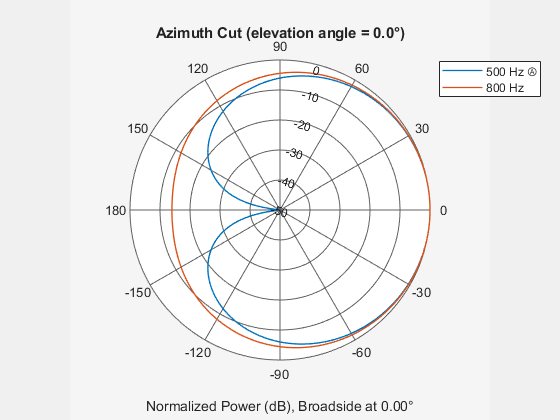Custom Microphone Element
Support for Custom Microphone Elements
You can model a microphone with a custom response pattern using phased.CustomMicrophoneElement System object™.
The total response of a custom microphone element is a combination
of its frequency response and spatial response. phased.CustomMicrophoneElement calculates
both responses using nearest neighbor interpolation and then multiplies
them to form the total response. When the PolarPatternFrequencies property
value is nonscalar, the object specifies multiple polar patterns.
In this case, the interpolation uses the polar pattern that is measured
closest to the specified frequency. When you use phased.CustomMicrophoneElement,
you must specify these microphone attributes.:
Frequencies where you specify your response using the
FrequencyVectorproperty.Response corresponding to the specified frequencies using the
FrequencyResponseproperty.Frequencies and angles at which the microphone’s polar pattern is measured.
Magnitude response of the microphone.
Custom Cardioid Microphone Pattern
Create a custom cardioid microphone, and plot the power response pattern at 500 and 800 Hz.
sCustMic = phased.CustomMicrophoneElement; sCustMic.PolarPatternFrequencies = [500 1000]; sCustMic.PolarPattern = mag2db([... 0.5+0.5*cosd(sCustMic.PolarPatternAngles);... 0.6+0.4*cosd(sCustMic.PolarPatternAngles)]);
pattern(sCustMic,[500,800],[-180:180],0,'Type','powerdb')
